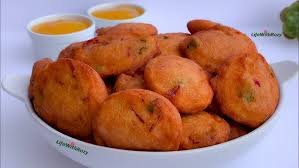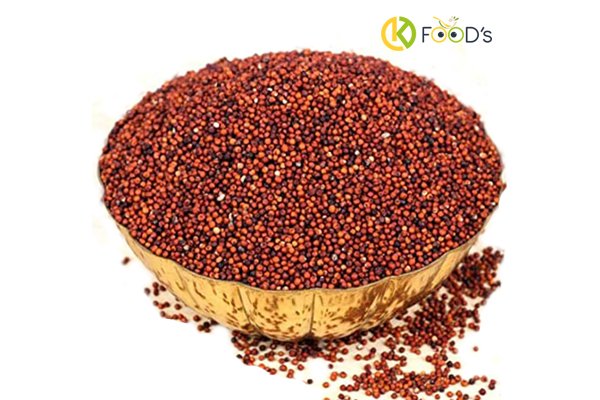Nutrition
Overcoming breast cancer with diet: vegetable edition

Vegetables are important part of our diet
Last week’s piece was about how we can protect our health against breast cancer with fruits. In this week’s episode, we will be talking about how we can maximise our health against breast cancer with vegetables.

Vegetables are a very important part of our diet. Knowing the types and amount of vegetables is paramount in optimising our overall health.
The following include a variety of vegetables that contain the minerals and vitamins necessary to boost our immune system to fight against breast cancer.
• Green leafy vegetables: lettuce, kontomire, bokoboko, ayoyo, bitter leaf, alefu
• Cruciferous vegetables: cabbage, cauliflower and broccoli
• Marrow vegetables: pumpkin and cucumber
• Root vegetables: beetroot, carrot and potato
With any food of your choice, for example rice, yam, etc., a number of recipes can be made from combinations of the aforementioned vegetables. These include:
• Vegetable stew
• Vegetable soup
• Vegetable salad
• Coleslaw
Some of these vegetables, such as carrot, cucumber, beetroot, etc. can also be eaten raw as snack.
In our next chapter, we will discuss some foods/recipes that are low in cholesterol and saturated fats, as well as lifestyle modifications in general, which is also an integral part of the fight against breast cancer.
The writer, Bernice Korkor Asare is a Dietitian and CEO of Holistic Health Consult
“Your diet your health, your health your wealth”
E-mail:
info@holistichealthconsult.org
Nutrition
Koose (fried cowpea bean cake)

Ingredients
• 300 grams of cowpea (dehusked) flour
• 200 ml of oil (for deep frying)
• 20 grams of ginger
• 10 grams of fresh or dry hot pepper
• 50 grams of onion (optional)
• 2 tablespoonfuls of salt
• 1000 ml water
Preparation
-Wash, peel ginger, hot pepper, onion (Grind or blend)
-Mix water with cowpea flour and beat until mixture is fluffy
-Add ground spices (ginger, hot pepper and onion) and salt to cowpea flour in bits and continue to beat
-Add water and stir to mix evenly and to obtain a soft dropping consistency cooking
-Put oil on fire and add chopped onions
-Drop mixture by spoonfuls in the hot oil and fry, turning occasionally until golden brown (frying may take about three minutes)
– Take the cakes from hot oil, drain in a colander and place on kitchen paper to extract excess oil
• Serve hot with corn, millet or sorghum porridge or alone as a snack
By Linda Abrefi Wadie
Nutrition
Benefits of millet

– High nutritional value: Millets are a rich source of nutrients, including protein, fibre, and micronutrients like magnesium, potassium, and zinc.
It also has a low glycemic index. This makes it an ideal food for people with diabetes or anyone looking to maintain stable blood sugar levels.
– Gluten free: Millet is naturally gluten-free, making it an excellent choice for those with celiac disease or gluten intolerance. It’s also a great alternative to wheat for people looking to reduce their gluten intake.
-Promotes digestive health – The high fibre content in millet makes it an excellent food for promoting digestive health. It can help to prevent constipation and reduce the risk of colon cancer.
-Aids weight loss – Millets have a low calorie count, and they are an excellent food product for weight loss. They help to maintain energy levels throughout the day, preventing the need for constant snacking and overeating. Millets also keep you satiated for longer than other carbohydrates, as they take time to get digested and absorbed into your body.
-Keeps blood sugar levels low – Millets have a low glycaemic index, which makes them an excellent food for regulating blood sugar levels. Consuming millets regularly can lower your risk of developing diabetes.
-Boosts Immunity – Millets provide a great source of protein and can help develop and strengthen your immunity. A stronger immune system means fewer chances of you catching diseases.
-Reduces cardiovascular risks – The essential fats found in millets provide our bodies with good fats which prevent excess fat storage, effectively lowering the risk of high cholesterol, strokes, and other heart complaints. The potassium content in millets regulates your blood pressure and optimises your circulatory system.
-Prevents asthma – The magnesium content in millets can reduce the frequency and severity of migraines and asthma complaints. Unlike wheat, they do not contain the allergens that lead to asthma and wheezing.
-Helps your digestion – Millets are a rich fibre source that benefits digestion by alleviating bloating, gas, cramping, and constipation. Good digestion keeps issues like gastric/colon cancer and kidney/liver complaints away.
-Acts as an antioxidant – Millets help the body detox because of their antioxidant properties. Quercetin, curcumin, ellagic acid, and other valuable catechins flush out toxins from your body and neutralise the enzymatic actions of your organs.
Source: wafflemill.com







